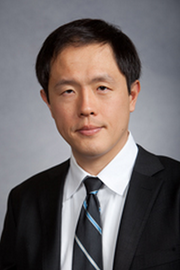
Protein misfolding occurs in numerous human diseases including cancer, Alzheimer’s Disease, neurodegeneration, diabetes, Cystic Fibrosis, viral infections, and blindness associated with retinitis pigmentosa due to expression of misfolded P23H rhodopsin in the eye. Human cells respond to protein misfolding by activating a set of intracellular signaling pathways collectively termed the Unfolded Protein Response (UPR). UPR signaling promotes cell survival by reducing misfolded protein levels in the cell. If protein misfolding persists, UPR signaling switches to promote cell death. The Lin group studies the role of the UPR in the pathogenesis of these diseases that arise from protein misfolding. It characterizes which molecules of the UPR are activated at different stages of disease progression. The Lin group develops genetic and chemical ways to artificially control the UPR in mammalian cells. It tests if artificial manipulation of the UPR can prevent these diseases. The group pursues these experiments in tissue culture or in transgenic animal models.
The Lin group also studies how the UPR signaling pathways determine whether to protect cells or promote cell death. Protein misfolding initially triggers protective actions by the UPR. But, if protein misfolding persists, the UPR switches to promoting cell death. What is the molecular basis for this switch in UPR activity? The group examines transcriptional, translational, and post-translational mechanisms that could determine whether UPR signaling pathways are protective or proapoptotic. It pursues these experiments using mammalian cell lines.
Source: http://pathology.ucsd.edu/faculty/lin_jonathan.htm